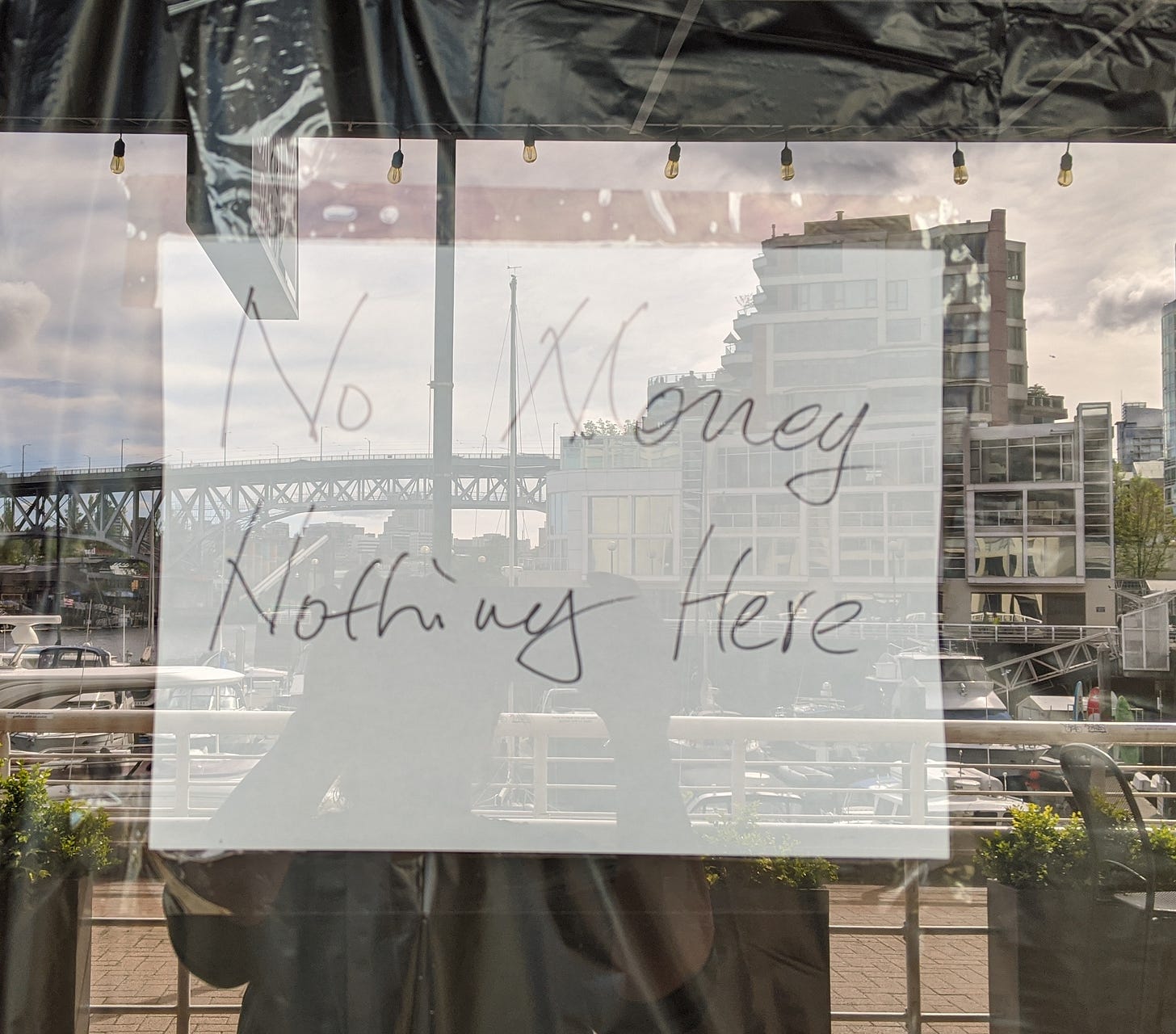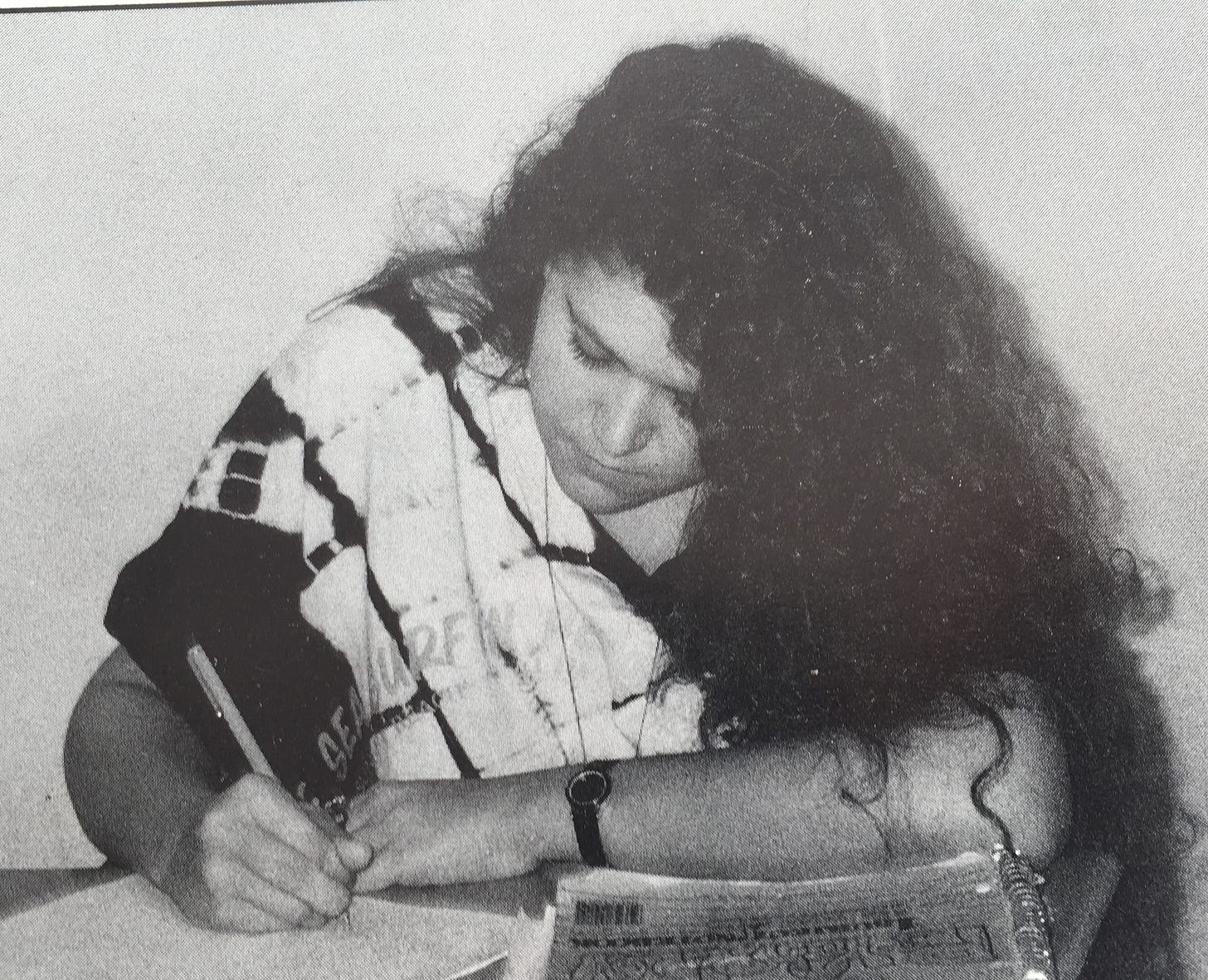“Wow, I sure picked the wrong time to fuck up Robin Hood.”
I’ve said this out loud more than once since November.

Until recently, I had been pretty proud of the fact that I was retelling the medieval Robin Hood’s story—making him a grey character, a dangerous rebel rather than an idealistic hero. But lately, I can’t help but wonder whether returning a beloved symbol of resistance to his problematic roots was the brightest idea at this particular moment, when people really need hope.
I wouldn’t be the first writer to feel a lot of self-doubt in her debut year. Actually, “self-doubt” is a huge understatement: constant, all-consuming anxiety is a much better description. Every bad review, every list you’re left off of, every book club or feature that passes you over, every social media post that dies in the dark—it can feel like the end of the world.
And in the midst of that worry and pressure, a writer has to write Book Two. I was confidently incorrect that I wouldn’t fall prey to “Second Book Syndrome,” that particular combination of fear, guilt, and exhaustion that comes from starting a new novel with everybody watching. After all, I am—to put it politely—no spring chicken. I’m well-seasoned. I worked hard and sacrificed a lot to get to the place where I could write Book Two and someone would want to read it. And I’m already a published academic writer, with plenty of experience churning out the next thing while worrying about the last one.
But what a fool I was. Second Book Syndrome is definitely here, and it stinks.
Right now, I’m working on something very different from The Traitor of Sherwood Forest. (Secret project alert!) But it’s especially hard to put your head down and write when, on top of being stuck in an authorial cliché, there’s a new horror in the news every other second. For example: I live in Canada as a dual US/Canadian citizen, so my former government is currently destroying everything I care about while also threatening to devour the country I love and have made my home.
There are some truly inspiring motivations going around for writing through this disastrous time, about artists changing the world and getting us through the darkness. And there is definitely something to be said for creation in the time of destruction, for truth-telling in a sea of lies. There’s also something to be said for shooting your shot—taking your chance—at a time like this, because you genuinely might not have another.
But I’m a pragmatist at heart, so I also need a more concrete motivation. For me, writing is about connection—and response. It’s a way of speaking to people, of showing them things I find wonderful or terrible, of opening up as a person who is super uncomfortable opening up under nonfiction circumstances. The truth is, I spent most of my life writing fiction for myself, in private, constantly scribbling at the novels I really wanted to write, then throwing them on the backburner so I could produce a bunch of scholarship that very few people would ever read.

A lot of times authors are asked whether they would keep writing if they had no readers, or just a few readers. And my answer is yes, sure, I always have. But I wouldn’t like it as much.
Wait, Goodreads? Are you sure?
Believe it or not, it was an accidental encounter with Goodreads reviews of Traitor that reminded me why I wrote Robin Hood the way I did and gave me the motivation to keep working on the next thing. Obviously, the reviews are not universally good, because it wouldn’t be Goodreads if they were! But I’ll share a few snippets of the ones that really moved me, really showed me that I was making a connection.
“Thrilling and romantic, this was the legend of Robin Hood told from the eyes of one of his little birds, a common servant girl roped into his plots. A story about who’s forgotten in man’s search for greatness, the untold stories of the helpers—ordinary people whose names are lost to history.” (Molly O’Sullivan on Goodreads)
“Jane, the FMC, was naive, but not in a way that made her irritating. She was clever, just learning and growing in her own way. Robin, on the other hand, was a character I both loved and hated, in the best way possible. He felt so human—flawed, complex, and unpredictable…” (Farda Hus on Goodreads)
“The Traitor of Sherwood Forest is such a thought provoking story, from a woman’s point of view. I really have not spent a day where my mind has not wandered back into it.
Jane’s moral compass being at odds with what is true and fair justice, amongst men who were never held accountable, not by the law of the kingdom nor the church.
Kaufman did the most accurate portrayal in my opinion of Robin Hood and his men, no matter how true and righteous of your cause no one is immune to corruption of any kind.” (Bailey Eubank on Goodreads)
It’s a wonderful thing to read a good review. It’s quite another thing to read good reviews that show you’re doing exactly what you wanted to do with your book. It’s an incredible feeling, like you have reached across space and time with storytelling and somehow, magically, moved someone else.
I’m so grateful to these readers because they helped me realize that the Robin Hood story I decided to tell in The Traitor of Sherwood Forest was the right one, at the right time, for them. It’s a human story rather than a glossy adventure or a morality play. And maybe that’s what some of us need in uncertain times.
I started writing the book that was once called The Crow’s Song, which is now The Traitor of Sherwood Forest, during the first year of the COVID pandemic. Life had stilled and quieted around me, and everything had become chaotic and strange. Here in BC, we were hailed at the beginning of the pandemic for being such great rule-followers, but things were beginning to break down thanks to social media campaigns and parades of angry, horn-honking conspiracy theorists. Information became confusing, inconsistent, almost impossible to get. It was easy to slip into a character like Jane, my heroine, who is vulnerable and unsure and really can’t trust anybody; and it was just as easy to slip into Robin Hood, betrayed by leaders and institutions and driven by anger and pain.
Right now, when so much needs changing, when so much action needs to be taken, I think there is value to realizing that heroes are just people—human and flawed. There’s also value in knowing that heroes are not the only ones capable of making change, so we don’t need to sit back and wait for them.
The Traitor of Sherwood Forest isn’t just a Robin Hood story. It’s also a story about finding power, especially when you don’t think you have any. There’s a moment when Jane helps Robin’s gang with a mission and feels her own power for the first time. She has grown up a peasant, expecting nothing, but after the mission, she suddenly believes she might be someone of consequence, someone who can “press the world with her finger and force it to tip.”
It’s that feeling, I think, that we need—writers and readers alike—when the system we’re up against feels impossibly, crushingly strong, and when no one is swooping in to save us. If we’re not waiting to be rescued, if we realize that heroes are just people who decide to act, that means everything is up to us.
Maybe, right now, we don’t need to believe in heroes after all. Maybe we need to believe more in ourselves.
News and Updates
Speaking of Goodreads, today is the very last day of the Goodreads ARC giveaway for The Traitor of Sherwood Forest! Sign up here before midnight tonight to win a copy!
I’m delighted to announce that Upstart & Crow, the coolest Literary Studio in Vancouver, is hosting The Traitor of Sherwood Forest official launch! If you’re in the area, you can register at this link! I’ll be in conversation with writer and artist Michelle Wong, known for her work on the Legends of Korra graphic novels and her own upcoming novel, House of the Beast! We’ll talk about debuting, writing female anti-heroes, working in different genres, and why people mistake our books for romance. If you can’t make the talk, you can preorder both The Traitor of Sherwood Forest and House of the Beast from Upstart & Crow and support a great Canadian literary institution!
I have more events on the horizon, including October talks at Acadia University and Dalhousie University in Nova Scotia. I’ll keep you updated here and on social media when I have more details! I’ll also have exciting news about the Traitor audiobook coming very soon!
Finally, I’m behind on my reading (and everything else), but I’m in the middle of some fabulous 2025 debuts, including Karissa Chen’s gorgeous intergenerational story Homeseeking and Laurie Dove’s absolutely gripping Mask of the Deer Woman. If you’re looking for a treasure trove of new books, you can follow the 2025 debuts account on Instagram to keep track of new releases every week!
Thanks for reading, and I hope you get back to doing whatever it is that makes you feel powerful, even if it’s just putting down your phone, picking up a book, and looking for your next inspiration.
(Okay, okay. You can also read the book on your phone.)
—Amy




Beautiful and thoughtful! <3
I needed to read this too. I hope you find some light and peace and inspiration soon. I hope we all do.